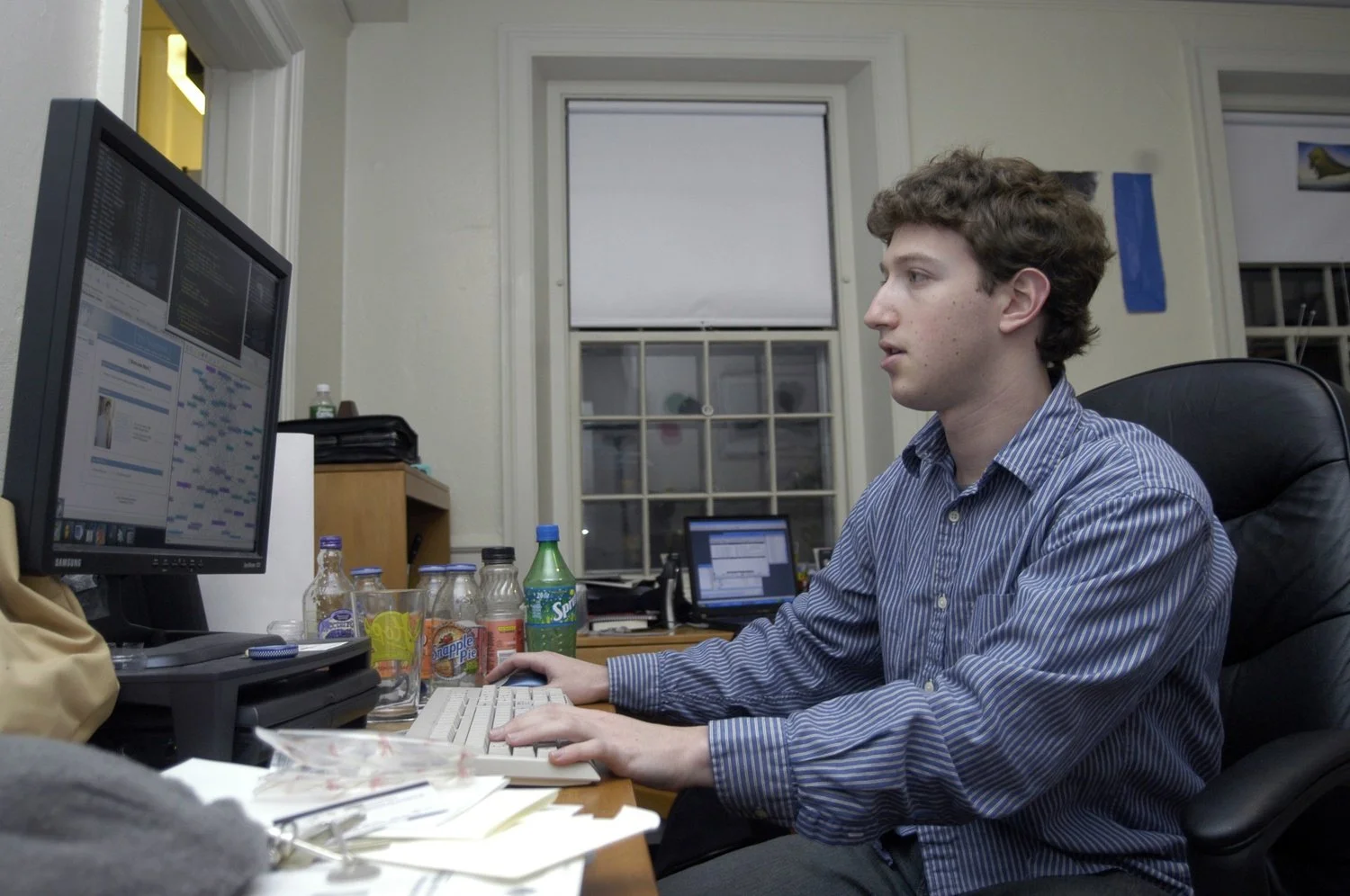Idea 11 - How to use Slack or Whatsapp to feel closer to your teammates
Working from home looks great; you’ve got no commute, you can wake up ten minutes before you sign in for the day, and if you want, you can work from anywhere you choose.
However, recent research shows it can get pretty lonely.
Remote working before Zoom!
I started remote working in 2008, well before it was “a thing”. I used to work in my spare room on my white Macbook, chat with my team via MSN messenger, and if both our internet speeds were good that day, I might have even had a Skype video call. At the time, when all my friends were commuting into London, I felt I was living the dream.
How we used to imagine remote working …
Then one day, my wife kicked me out of the house. She said that since I’d stopped working with “real” people, I’d become miserable and, worst of all, boring, and she packed me off to a local coworking space.
It changed my life.
I made lifelong friends, and most importantly, I started to understand the real importance of human connection and the feeling of belonging.
So in 2020, as I’d been remote working for 12 years, when we all went into lockdown, I suddenly found myself in high demand as a remote expert. I was called in by companies and business groups all over Europe to help them adapt to this new remote working world. They wanted to know how to keep their teams together.
How to build communities
Humans are social creatures and we will naturally seek out people we have something in common with. In the office, it is easier; you see your colleague’s Star Wars t-shirt and their Arsenal phone cover, you hear their Beyonce ring tone, and see their Hamilton screensaver. There are clues to find new friends everywhere.
But when you’re not in the office all the time, finding those colleagues with your interests is so much harder.
Learning from Facebook
In the early days of Facebook, Mark Zuckerberg famously said that he hadn’t created new communities; he’d just made it easier for existing communities to get together.
Pre-Facebook there had always been a group of Chihuahua owners in New York, but finding them and getting into their clique had not been easy. With Facebook, you could now find a group, be integrated, and ask for advice in just five minutes.
Mark Zuckerberg hasn’t changed much in the last 20 years
Keeping remote workers connected
In 2020, when companies approached me for advice on how to help their new remote employees integrate into their teams, I told them about Facebook. I told them they just needed to make it easier for employees to find their tribe.
The science and the stats … why a feeling of belonging is so important to your happiness and to your company.
A recent study of more than 11800 global participants, found that the most powerful driver of employee engagement is a feeling of belonging. If you feel you belong to your team or your company, if you feel you are in a community, you will be more engaged and consequently happier. It has a greater effect on your happiness at work than any other factor.
Additionally, if you have a strong sense of belonging to your workplace, according to Research by BetterUp you perform 56% better, you’re 50% less likely to leave, and you take 75% less sick days.
Feeling like you belong at work is a big deal - it’ll make you happier and your company will benefit.
Tip of the week
If you’re working in a company and you want to be happier, make sure you find your tribe.
If you're a leader, make it a little easier for your team to find colleagues with similar hobbies.
If you’re a solopreneur, join a network, find people with similar interests.
Last year I wanted to do more public speaking and run more workshops so I joined the recommended community - the Zoom calls I have with my colleagues every Monday are one of the highlights of my week.
The power of community
Engaging with colleagues with similar interests in a work Whatsapp group or Slack channel will help fulfil your need for belonging. And feeling like you belong will make you happier.
Ideas for groups I’ve seen used in companies
Music
TV series
Tech talk
Friday night movie recommendations
Dog lovers (they share photos)
Dad jokes (I’m a member of this one)
Extra reading
Nice research into the stages of belonging - Aga Bajer on LinkedIn
Loneliness is worse for your health than 15 cigarettes a day - Fortune
Qualtrics study on the importance of belonging for employee engageement
The Value of Belonging at Work: Investing in Workplace Inclusion - Betterup
…
If you’ve enjoyed this blog post please click the little heart below, it really helps me understand what content people are enjoying. Thank you!
Next week … The science explaining why flexitime makes you happier.
Follow the blog
I regularly write on how you can use the science of happiness and the science of wellbeing to improve team performance. Sign up now to receive the latest blog posts in your inbox.



